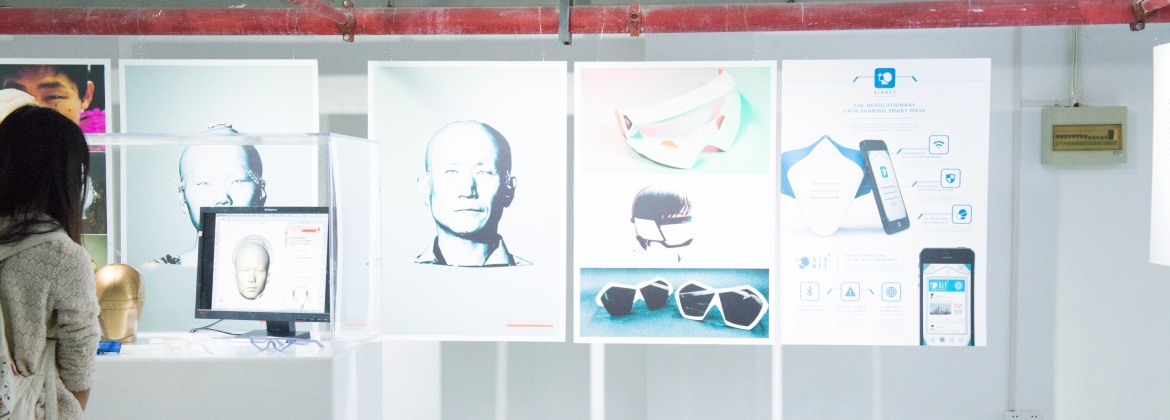
The PhD in Industrial Design is a strategic research collaboration between Xi’an Jiaotong-Liverpool University and the University of Liverpool. Upon successful completion of your programme, you will receive a degree from the University of Liverpool, which is recognised by the UK Department of Education as well as China’s Ministry of Education.
Students in this programme are formally registered with the University of Liverpool as off-site postgraduate research students. As a PhD student, you will have a designated principal supervisor at XJTLU who is a full-time academic staff member. In addition, you will have a designated co-supervisor based at the University of Liverpool.
Pursuing a full-time PhD typically involves three years of conducting research and one year of writing a thesis, supported by subject-specific and general skills training and development. A full-time PhD student must submit their thesis within four years (or six years for part-time PhD students).
XJTLU is the first university in the Chinese mainland to have Industrial Design programmes officially accredited by the Chartered Society of Designers (CSD), an internationally recognised body for the design profession.
Earning a PhD opens you to a wide array of career opportunities in academia, industry and professional practice. The PhD in Industrial Design at XJTLU is the ideal bridge to a research-focused career within the most prestigious research institutions. It can serve to settle your own practice-based, research-driven design business, or further develop your expertise in any academic institution worldwide.
The R+ research lab explores the breadth of interactions between people, products and context, material or immaterial, to advance existing knowledge and express it in meaningful and innovative experiences.
The research lab helps us understand how we communicate through products, systems or services, and the relationship between perception, cognition and behaviour. Students will learn how to use this knowledge to design, innovate, and improve the facets of everyday life by creating new situations or changing existing ones.
Research lab coordinators: Nuno Bernardo, Dr Mengjie Huang
Set against a background of sustainable development, the S+ Research Lab investigates how design can be an agent of change with social impact on a micro and macro scale for communities, education, environment and industry.
The Social Innovation Design Lab is user-centred and is led by practice-based research. It adopts a holistic approach, acknowledging that collaborations are essential to create impact within national and international contexts.
Research lab coordinators: Luis Felipe Moreno Leyva, Ema Corti
The Digital Manufacturing Lab has a twofold nature. It serves R+ and S+ in areas where advanced manufacturing expertise is needed, and also promotes its own research stream.
M+ is set at the crossover of China’s advanced fabrication processes and traditional crafts, including bamboo, copper, clay, jade, silk, silver, stone, and wood. The lab aims to develop research into a contemporary design language as an intertwined expression of regionalism and digital innovation. It investigates how design can become an agent for re-interpreting vernacular languages to meet contemporary needs, how to de-construct traditional crafts, and integrate them in contemporary design and digital manufacturing ecosystems.
Research Lab coordinators: Paul Denison, Ivan Parati
We are a multidisciplinary research team nurturing critical and innovative thinking about design in a broader context. We challenge the status quo and push the boundaries of industrial design. The symbiosis of Chinese and Western culture is an integral part of our research to innovate the social, cultural, and sustainable contexts.
We collaborate with the Design School, International Business School Suzhou, and the School of Cultural Technology across curricula and Final Year Projects. Externally, we work with industry partners both domestically and internationally via Cumulus and Chartered Society of Designers (CSD) partnerships.
PhD students share an office with individual workspaces to conduct their studies. R+ and S+ have dedicated research labs in the International Research building. M+ operates predominantly in the Design School Fab Lab, with multiple workshops and equipment for model making, prototyping and digital fabrication.
Find out potential supervisors from Department of Industrial Design.
Find out potential supervisors from School of Intelligent Manufacturing Ecosystem.
The scholarship application is open only to those applying for a full-time doctoral programme.
1) Apply for a scholarship for a funded PhD project:
One option is to apply for an existing PhD project that has received funds from the University or external funding bodies. The research topic and supervisory team for these projects have already been established.
There is no specific application deadline for a project as it will remain open until the position is filled. The start date of a PhD programme is usually the first day of March, June, September, or December. You can visit the Postgraduate Research Scholarships Page for information about the specific PhD projects available or to contact potential supervisors to discuss funding opportunities.
2) Apply for a postgraduate research scholarship with your own project
You can also apply for a scholarship with your own project. With this option, there will be two application rounds each academic year:
| Application Rounds | Application deadline | Release of results |
| First Round | 17:00 CST(UTC+8), 15 October | End of December |
| Second Round | 17:00 CST(UTC+8), 15 April | Early July |
